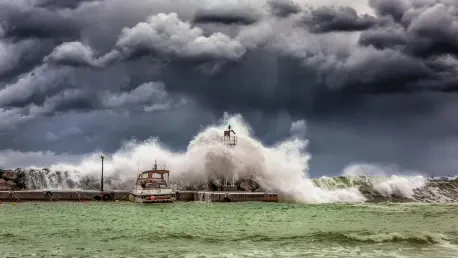In the aftermath of devastating hurricanes that batter Florida’s coastline with increasing ferocity, a troubling question looms over the state’s residents: are insurance companies truly standing by their policyholders when disaster strikes? Homeowners, already grappling with the physical and emotional toll of natural catastrophes, often find themselves facing an additional battle—navigating a maze of delayed claims, denied coverage, and inadequate responses from insurers. This issue has come into sharp focus following recent regulatory actions against several major insurance providers in Florida, revealing systemic shortcomings in how claims are handled after events like Hurricane Ian. The fines imposed on these companies, while a step toward accountability, have sparked debate about whether they are sufficient to address the deeper problems within the industry. As climate change intensifies storms and strains the market, the plight of policyholders caught between corporate interests and environmental challenges demands urgent attention.
Regulatory Actions and Industry Misconduct
Recent actions by the Florida Office of Insurance Regulation have cast a harsh light on the practices of several insurance providers in the wake of natural disasters. Three companies—TypTap Insurance, American Coastal Insurance, and Sutton National—faced significant fines for mishandling claims after a major hurricane. TypTap was penalized $150,000 for delays in acknowledging claims and failing to provide necessary disclosures to policyholders. American Coastal Insurance received a steeper fine of $400,000 due to issues like using unappointed adjusters and incomplete communication with claimants. Sutton National, meanwhile, was fined $50,000 for similar lapses, including inadequate disclosures during partial claim payments. These penalties, though notable, are viewed by some experts as a mere slap on the wrist when compared to the substantial profits these insurers generate. The disconnect between the fines and the financial burdens placed on homeowners through denied or delayed claims underscores a growing frustration among Florida’s residents.
Beyond the financial penalties, the regulatory response highlights a broader pattern of misconduct within the insurance industry in Florida. Critics argue that these companies often prioritize cost-saving measures over timely and fair claim processing, leaving policyholders in dire straits during their most vulnerable moments. Doug Quinn of the American Policyholder Association has pointed out that the treatment of Florida claimants ranks among the worst in the nation, with many facing long waits or outright rejections for legitimate claims. The fines, while a signal of regulatory intent, do little to address the systemic issues that allow such practices to persist. There is a pressing need for more robust oversight, including proposals to mandate detailed reporting on litigation and property disputes by insurers. Without such measures, the cycle of inadequate responses and policyholder hardship is likely to continue, especially as natural disasters become more frequent and severe due to environmental changes.
Climate Challenges and Market Instability
Florida’s insurance market is under immense pressure, driven by the escalating impacts of climate change that exacerbate the frequency and intensity of hurricanes. Rising global and ocean temperatures, fueled by environmental pollution, have led to storms that cause unprecedented property damage, placing enormous strain on insurers. As a result, many companies are either exiting the Florida market altogether or significantly hiking premiums—some reports indicate increases of up to 30% over a short span. This leaves homeowners with fewer options and higher costs, often forcing them to accept reduced coverage or bear the financial risks themselves. The trend of insurers selectively covering low-risk policies while abandoning those in high-risk areas further deepens the crisis, particularly for residents in coastal regions most prone to storm damage. This market instability paints a grim picture for policyholders already struggling to rebuild after disasters.
The ripple effects of these climate-driven challenges are felt acutely by Florida’s homeowners, who face a double burden of environmental vulnerability and financial uncertainty. As insurers pull back, the state’s residents are often left to navigate a fragmented system where fair and reliable coverage is increasingly out of reach. Some companies have been criticized for shifting risks and costs onto policyholders, a practice that has historical roots in the industry and continues to erode trust. The growing tension between insurers and those they are meant to protect raises critical questions about the sustainability of the current model. While regulatory efforts aim to hold companies accountable, there remains skepticism about whether these actions can keep pace with the rapid changes in climate patterns. For many Floridians, the reality of preparing for the next storm includes not just physical fortifications but also bracing for potential battles with their insurance providers.
Homeowner Struggles and Practical Solutions
For Florida homeowners, the aftermath of a natural disaster often extends far beyond repairing physical damage, as they confront an insurance landscape that frequently fails to deliver on its promises. Many report frustrating experiences of delayed claim processing or outright denials, leaving them to shoulder significant out-of-pocket costs during recovery. The emotional and financial toll of such setbacks is profound, particularly for those in areas repeatedly hit by storms. With premiums soaring and coverage options dwindling, residents are caught in a precarious position, forced to weigh the cost of insurance against the risk of going uninsured. This uncertainty is compounded by the knowledge that even with a policy in place, timely support is not guaranteed. The stories of policyholders waiting months for responses or receiving inadequate settlements underscore a broader sentiment of abandonment by an industry meant to provide a safety net.
Amid this unreliable insurance environment, many Floridians are taking matters into their own hands by investing in property improvements to mitigate damage from future storms. Installing hurricane shutters, reinforcing roofs, and elevating structures are among the practical steps being adopted to reduce reliance on insurers. These measures, while costly upfront, offer a degree of control in an otherwise unpredictable situation, especially as hurricane seasons grow more intense. Homeowners are also urged to thoroughly review policy details and document property conditions to strengthen claims if disaster strikes. However, such self-reliance cannot fully compensate for systemic failures within the insurance sector. The burden of preparation and recovery continues to fall heavily on individuals, highlighting the urgent need for reforms that prioritize policyholder protection over corporate interests. Until stronger regulations emerge, these personal efforts remain a critical, though incomplete, response to an ongoing crisis.
Path to Reform and Future Protections
Reflecting on the challenges faced by Florida’s policyholders, it becomes evident that the insurance industry has often fallen short during critical times of need after disasters strike. The fines levied against companies for misconduct, though a necessary measure, are widely seen as insufficient to deter future violations or alleviate the burdens on homeowners. The vulnerability of the state’s market, strained by climate-driven storms, has only amplified these struggles, leaving many residents with limited options and escalating costs. Regulatory efforts to enforce accountability have begun, but doubts linger about their effectiveness in addressing deep-rooted issues. Homeowners, meanwhile, have turned to practical solutions to safeguard their properties, a testament to their resilience amid systemic shortcomings. Looking ahead, the focus must shift to stronger oversight and penalties that match the scale of insurer profits, ensuring that policyholder needs are not sidelined. Sustained intervention and innovative policies will be essential to rebuild trust and secure fair coverage for Floridians facing an uncertain future.









